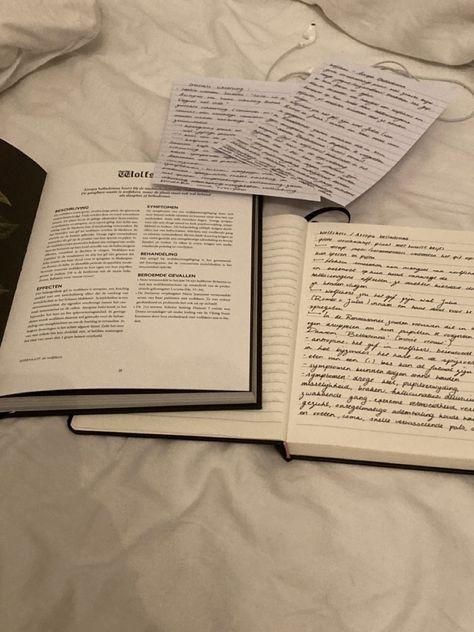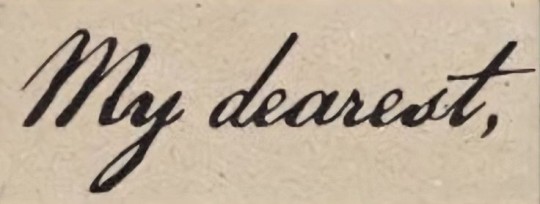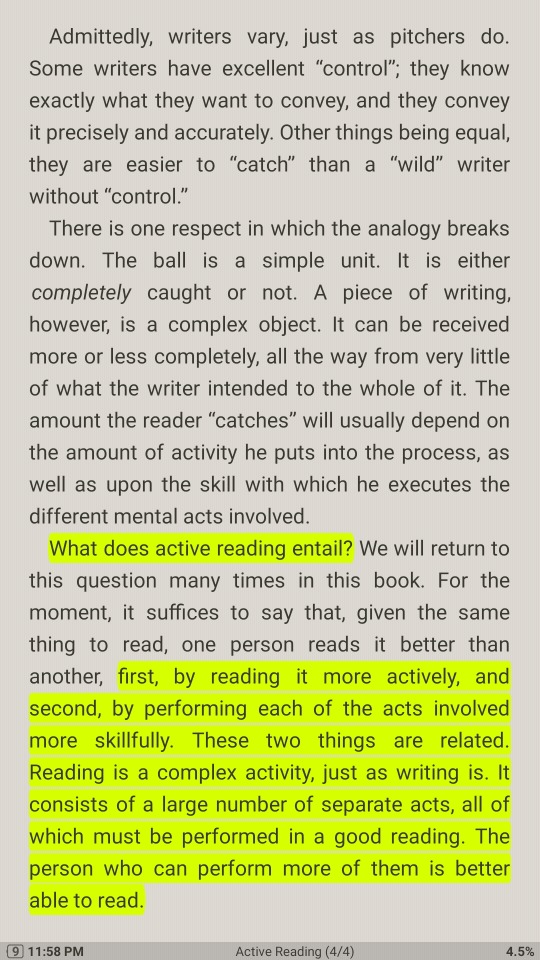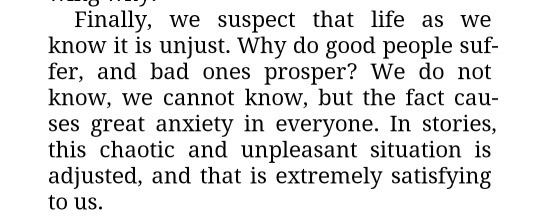#syntop
Explore tagged Tumblr posts
Text
An Knee Way
Guess whose Archer & Olive shipment should be here tomorrow or Wednesday and who is currently doing the pre-planning for its reading journal :3c
#it's v funny to get accused of being anti-intellectual when i'm literally preparing to set up an entire reading log#that is almost entirely for nonfiction syntopical reading and poetry analysis#get a thing (me) that can do it all (engage with intellectual analysis when i choose to and refuse to do it with condescending assholes)#i'm so excited about this journal for real though — it's cute it's got a little bee on the cover#i also got a journal to log the concerts i go to + my music listening habits / favorite songs + albums#and another journal to track all of my creative endeavors (like my poetry book and all my crochet and mixed media projects)#i've been working on outlines for the set up for all of them almost all day#7th speaks
1 note
·
View note
Text
Day 13/100 days of Productivity
15th-16th April, 2024



Academia
I finished cockroach lecture and I can confidently say, I'm very good at it now. Haha, yes!
I watched half of a lecture on Atomic structure.
Revising a few questions from Solids that I forgot to yesterday.
Read over cockroach and frog notes.
I did something else too but I got lazy and forgot to update it here.
Non Academia
Watched a few parts of a bunch of Claire Nakti videos.
I also watched this video and in here he talks about syntopical reading. I really like the method he's talking about and I've used that before too. But I'll take anything at this point, so I'm gonna try it now.


20 days of April breaking the cycle - 3/20
I basically took a break of a whole day, half a day on 15th and other half on 16th. It was theraupatic, it was fun. I enjoyed it. But now what do I do? There are 17 days left in my exam. I shouldn't take any more breaks. But....I'm not really as worried (i should be). I've unlocked a new level of metaphorical debauchery when it comes to my studies.
-Tanishka.
Day 12
Day 14
Pictures from pinterest. Credit to the owners.
#studyblr#study aesthetic#study motivation#productivity challenge#20 days of april breaking the cycle#20 days of april breaking the cycle challenge#20doa🚲#student life#studying#study with me#100 days of productivity#desi academia#good luck ✨#light academia#study blog#student#study#studyblr community
23 notes
·
View notes
Text
Posting this at a non-optimal time but I'm starting a reading journal soon that is primarily for logging my non-fiction and poetry reading / analysis. Would it be interesting if I posted my set up for it once it's all put together?
I'm using a few different criteria formats for the analysis — primarily syntopical reading for the nonfiction and Paisley Rekdal's approach to poetry from her book Real Toads, Imaginary Gardens — but since I am going to be analyzing the occasional work of fiction I'm also going to include a modified CAWPILE method (modified since most of the fiction I consume is in podcast format and it's more convenient to track that in my reading log than anywhere else) and my methods for analyzing comics and graphic novels too.
idk if that's of interest but I'd love to share it and I feel like folks on this blog might enjoy it?
6 notes
·
View notes
Text
So there's two ways I read books:
glutting on an audiobook and then looking at the parts I didn't understand in print
reading 4 books at once in a haphazard manner
Apparently that's called "analytical reading" and "syntopic reading" and it's advanced techniques when all this time I thought it was just ADHD.
3 notes
·
View notes
Text
Museomics of Carabus giant ground beetles evidences an Oligocene origin and in situ Alpine diversification
The development of museomics represents a major paradigm shift in the use of natural history collection specimens for systematics and evolutionary biology. New approaches in this field allow the sequencing of hundreds to thousands of loci from across the genome using historical DNA. HyRAD-X, a recently introduced capture method using bench-top designed probes, has proved very efficient to recover genomic-scale datasets using natural history collection specimens. Using this technique, we infer at both the intra- and interspecific levels, the most robust phylogeny of Arcifera to date, an ecologically and morphologically diverse clade of Carabus giant ground beetles. We successfully generated a genomic dataset of up to 1965 HyRAD-X loci for all described species, permitting to infer a robust dated phylogenomic tree of this clade. Our species delimitation and population genomic analyses suggest that the current classification in Arcifera is in line with its evolutionary history. Our results suggest an origin of Arcifera in the late Oligocene followed by speciation events during the warm mid-Miocene unlinked to Pleistocene glaciations. The dynamic paleogeographic history of the Palearctic region likely contributed to the diversification of this lineage with a relatively ancient colonization of the proto-Alps followed by in situ speciation where most species of Arcifera are currently found sometimes syntopically likely as a result of post-glaciations secondary contacts. http://dlvr.it/T4ghX0
0 notes
Text
IN MEMORIAM- Silviu Vaipan
L-am cunoscut pe Silviu acum trei ani, când era student la Institutul Penticostal din București. S-a alăturat echipei Syntopic, iar între timp a plecat în Marea Britanie să studieze informatică. În aprilie am aflat de la el că a fost diagnosticat cu leucemie. A urmat o perioadă foarte dificilă de tratament, a trecut printr-un transplant care părea să aibă rezultate bune, dar acum două săptămâni…

View On WordPress
0 notes
Text
Spend 1 Hour Studying to Save 20 Hrs Later
Learn about priming, syntopical reading, and higher-order learning. Join my Learning Drops newsletter (free): … source
0 notes
Audio
2 notes
·
View notes
Text
Syntop Audio 45 - Schacke
Just found my new go-to dub set. For those lazy mornings, hangovered Sundays and days in the great outdoor. So many favourites in there.
Not what I was expecting before pushing the play button.
1 note
·
View note
Audio
Mama Snake for Wave Of Hope by Syntop https://ift.tt/30fkXNF
4 notes
·
View notes
Photo

Logo Design for SYNTOP music collective. #design #logo #syntop #music #techno #drumandbass #industrial #berlin #logoDesign #lettering #typography #typedesign #illustration #drawing #hgphbc #hagiophobic #ernstheackel
#illustration#syntop#design#music#berlin#drumandbass#drawing#typography#logo#hgphbc#logodesign#lettering#typedesign#hagiophobic#ernstheackel#industrial#techno
3 notes
·
View notes
Text
Kutu Buku Bukan Jaminan Mutu: Evaluasi Tentang Literasi
Buku adalah sebaik-baik teman. Teman bermimpi, teman berefleksi, teman merencanakan aksi, teman merancang strategi, teman menyendiri, dan bagi sebagian orang adalah teman ngopi.
Salah satu hal yang paling saya syukuri adalah rezeki bisa membeli buku-buku, nikmatnya kencan dengan buku-buku (terutama di rumah), dan memiliki mentor self-development yang juga kutu buku sekaligus founder “Gemar Baca Keliling” yang project-nya dilakukan dari Sabang sampai Merauke (tapi sayangnya project itu gak berlangsung lama, hanya masih sampai Sabang, karena beliau menikah). Dulu saat awal-awal saya mengenal mentor saya, rasanya excited tiap bertemu dengannya, karena setidaknya akan ada bahasan tentang buku atau mendiskusikan isi buku.


Sebenarnya banyak masyarakat kita yang suka membaca, bahkan mengoleksi buku. Tapi mengapa banyak masyarakat kita yang belum cerdas? Lalu, bagaimana dengan skill dan kualitas literasi mereka?
Ada sedikit pergeseran makna literasi. Kalo dulu definisi literasi adalah kemampuan membaca dan menulis, sekarang literasi memiliki beragam definisi. Literasi berkaitan dengan kompetensi berpikir, mengolah informasi, dan memahami informasi. Menurut Education Development Center (EDC), literasi adalah kemampuan individu untuk menggunakan segenap potensi dan skill yang dimiliki dalam hidupnya dan mencakup kemampuan membaca dunia.
Literasi merupakan cara untuk mendidik dan memberdayakan diri, dan merupakan pondasi/modal seseorang untuk bisa berkomunikasi, berkehidupan sosial, berinteraksi dengan dunia, dan berkontribusi pada masyarakat. Allah pun telah mengajarkan pada kita untuk membaca dan menulis sebagai perangkat dasar untuk berkomunikasi. Iqra’, secara umum diartikan sebagai perintah untuk membaca. Tapi kata iqra’ yang berasal dari kata qara’a ini memiliki arti yang bermacam-macam, diantaranya adalah membaca, menganalisa, mendalami, merenungkan, menyampaikan, meneliti, menelaah, dan lain sebagainya.
Lalu iqra’ seperti apa yang seharusnya kita miliki? Saya lebih condong pada penjelasan Mortimer J. Adler dalam bukunya “How To Read A Book: The Classic Guide To Intelligent Reading”. Kenapa? Sebab Adler menyajikan cara praktis dalam membaca di level yang lebih tinggi. Artinya, pembaca buku sudah selesai/tuntas dalam masalah “minat baca” dan saatnya move on ke level yang lebih tinggi dari itu. Mari kita baca yang saya screenshot di bawah ini.


Jadi membaca itu ada 2, yakni membaca aktif dan membaca pasif. Maka dari itu, kutu buku bukan jaminan mutu. Hobi membaca buku bukanlah penentu ukuran kecerdasan seseorang. Sebab yang diperlukan adalah membaca aktif, bukan aktif membaca. Kalo “aktif membaca”, maka level kita masih setara dengan “minat baca”.
Membaca aktif masuk dalam skill produktif, yang mana output-nya adalah writing dan speaking. Sedangkan membaca pasif masuk dalam skill reseptif, yang mana hanya sekedar menerima input, yakni listening dan reading. Kita gak bisa terus-terusan menjadi pasif kan? Kapan naik levelnya? Apalagi menelan bulat-bulat apa yang kita baca.
Adler juga menjelaskan bahwa ada 4 level membaca, yakni elementary, inspectional, analytical, dan syntopical. Keempat proses ini harus runtut, gak boleh melompat atau hilang salah satunya. Saya gak akan menjabarkan masing-masing level ini, karena postingan ini akan menjadi sangat panjang nantinya, wqwq. Tapi saya ingin menekankan bahwa level analytical reading harus dibiasakan, sebab inilah basic intellectual reading. Ada 3 teknik analytical reading, yakni skimming, interpreting, dan criticising. Dan saya juga gak akan menjabarkan masing-masing teknik ini, sebab terlalu panjang.
Setelah kita mengetahui sekilas tentang membaca aktif (active reading), saatnya kita melakukan evaluasi, sejauh mana skill literasi kita. Saya mencoba membuat pertanyaan-pertanyaan evaluasi di bawah ini berdasarkan ‘insight’ yang saya dapatkan dari hasil membaca 3 jilid buku “Semua Murid Semua Guru” karya mbak Najelaa Shihab (salah satu psikolog favorit saya dan merupakan inspirasi saya di dunia pendidikan), insight dari bukunya Adler, dan pendapat saya pribadi.
1. Apakah buku-buku bacaan kita sudah cukup beragam?
2. Apakah buku-buku bacaan kita sudah benar-benar berkualitas?
3. Apakah kita mencari tahu atau menggali profil penulis sebelum membaca?
4. Apakah kita berempati dengan latar belakang penulis sebelum membaca?
5. Seberapa sering kita mengajukan pertanyaan-pertanyaan tentang buku yang akan kita baca?
6. Apakah tujuan kita membaca? Untuk hiburan, mengkonsumsi motivasi semata, menambah pengetahuan/wawasan/informasi, memahami (belajar), membandingkan, menggali data, menelaah, atau untuk mengkritisi sebuah karya/bacaan?
7. Bagaimana kita dapat menggunakan kemampuan berpikir kita secara maksimal dalam aktivitas membaca?
8. Apa yang kita lakukan setelah membaca? Apakah memvalidasi, mengkoneksikan setiap kata, mengaitkan antar kalimat, menginterpretasi makna, menarik kesimpulan, memperdebatkan gagasan, menganalisis argumen penulis, membandingkan latar belakang penulisan, mengaitkan dengan pengalaman, dsb?
9. Berapa banyak orang/teman yang bisa kita ajak berdiskusi atau brainstorming tentang isi buku yang kita baca?
10. Seberapa sering dan seberapa cakap kita menulis?
11. Apakah setelah membaca kita mengaplikasikan dengan hal yang relevan dalam kehidupan?
12. Apakah dengan banyaknya buku yang kita baca sudah membuat kita memiliki kemampuan penalaran dan pemecahan masalah di berbagai bidang? Atau setidaknya beberapa bidang?
Pertanyaan-pertanyaan di atas juga merupakan renungan dan evaluasi bagi saya pribadi. Sebab bergerak melakukan perubahan dan naik level itu tidak mudah. Ada variabel dan sisi ekologis yang menjadi pertimbangan.
Skill literasi yang terasah akan menghasilkan ‘jejak digital’ yang bermanfaat, aman, pantas, dan merefleksikan identitas diri kita yang sesungguhnya. (ybkb.or.id)
Lalu, buku-buku seperti apakah yang dapat mengasah dan meningkatkan skill literasi kita? Apakah penting membaca beragam buku? Dalam chapter terakhirnya, Adler mengatakan:
... you should seek out the few books that can have this value for you. They are the books that will teach you the most, both about reading and about life. They are the books to which you will want to return over and over. They are the books that will help you to grow.
Sebagai seorang bookworm yang gak enjoy dengan bacaan fiksi dan karya sastra, maka saya sependapat dengan Adler. Banyak hal yang harus kita ketahui, tapi gak semua hal harus kita ketahui. Gak semua ilmu harus kita pelajari. Gak semua buku bagus dan berbobot harus kita baca. Menurut saya pribadi, cukuplah membaca buku-buku berkualitas yang:
mengajak kita untuk berpikir secara kritis,
menyalakan akal dan membangun nalar kita,
menyajikan beragam tinjauan dan perspektif sehingga memperluas cakrawala berpikir kita,
membuat kita semakin dekat dengan Allah,
menuntun kita dalam kebajikan,
membuat kita bisa membedakan mana yang haq dan mana yang batil,
membantu kita untuk bertumbuh dan berkembang sebagai individu,
membekali kita untuk menghadapi fase-fase kehidupan.
Bagi yang gak sependapat dengan saya dan Adler, sebelum kita tenggelam dalam lautan berbagai genre buku, ada baiknya kita memprioritaskan bertafaqquh fiddin dan memperbanyak bacaan Islami, khususnya khazanah teologi Islam. Atau setidaknya berjalan seimbang dan beriringan dengan genre buku yang lain, agar ketika kita membaca berbagai ragam buku, kita punya filter dan gak keblinger.
Jember, 27 November 2021
92 notes
·
View notes
Text
Reading is fun. For a lot of people. It's the perfect escape as well as a healthy habit that makes you grow and know more about yourself and the world. You take pride in reading a lot of books and you see everywhere that people like to show how much they've read. So it became a trend to celebrate the quantity of books and make it a yearly resolution to read more and more. If you ask most of avid readers what the many books they've read were about, they will maybe tell you what genre it is and what it is about overall, or they will stay silent for a while then tell you they don't remember. So, yeah, it's not about how many books you read but rather how well you read them.

After reading this, i became aware of the fact that i've only skimmed the books i've read so far. All of them. I didn't go any further but I didn't know any other way.
Van Doren and J. Adler have made the process of reading into 4 steps or levels: Elementary, inspectional, analytical and syntopical.
The elementary is what we all know. It's the alphabetical reading you're taught at school. At this point, we haven't reached the ultimate purpose of reading, which is understanding. We should be able to improve our reading skills for it at high school level going forward.
Then comes inspectional reading, which is the "skimming" i think we all do. And even then, there are more things we need to consider in order to complete it. This step is done in limited time. Its purpose is to know if the book is worth diving deeper. And it's done in different speeds because books aren't read with the same speed.
After knowing if you want to go deeper, here comes the analytical reading. It's the principal step where you come at terms with the author and you need to do it well and carefully before giving any judgement or criticism. You need to understand them, objectively, before reacting any certain way. It's the longest chapter in the book, with a series of questions to answer in order to ease you in analysing what you're reading. And you need to complete it before going into the syntopical reading.
Now, the syntopical reading is when you read different books about the same subject to grasp all the sides before thinking for yourself. It follows the same rules of analytical reading but differently.
Van Doren and J.Adler are great orators and good writers. You won't get overwhelmed because they give a lot of examples for each genre of literature and offer you some tips to grasp the abstracts of what they're saying. Their ease of writing will keep you hooked in the book.


#charles van doren#mortimer j adler#how to read#how to read a book#book review#booklr#bookstagram#must read#books#bookish#must reads#bookworm#booktube#classic literature#non fiction#fiction#good reads#long reads#philisophy
19 notes
·
View notes